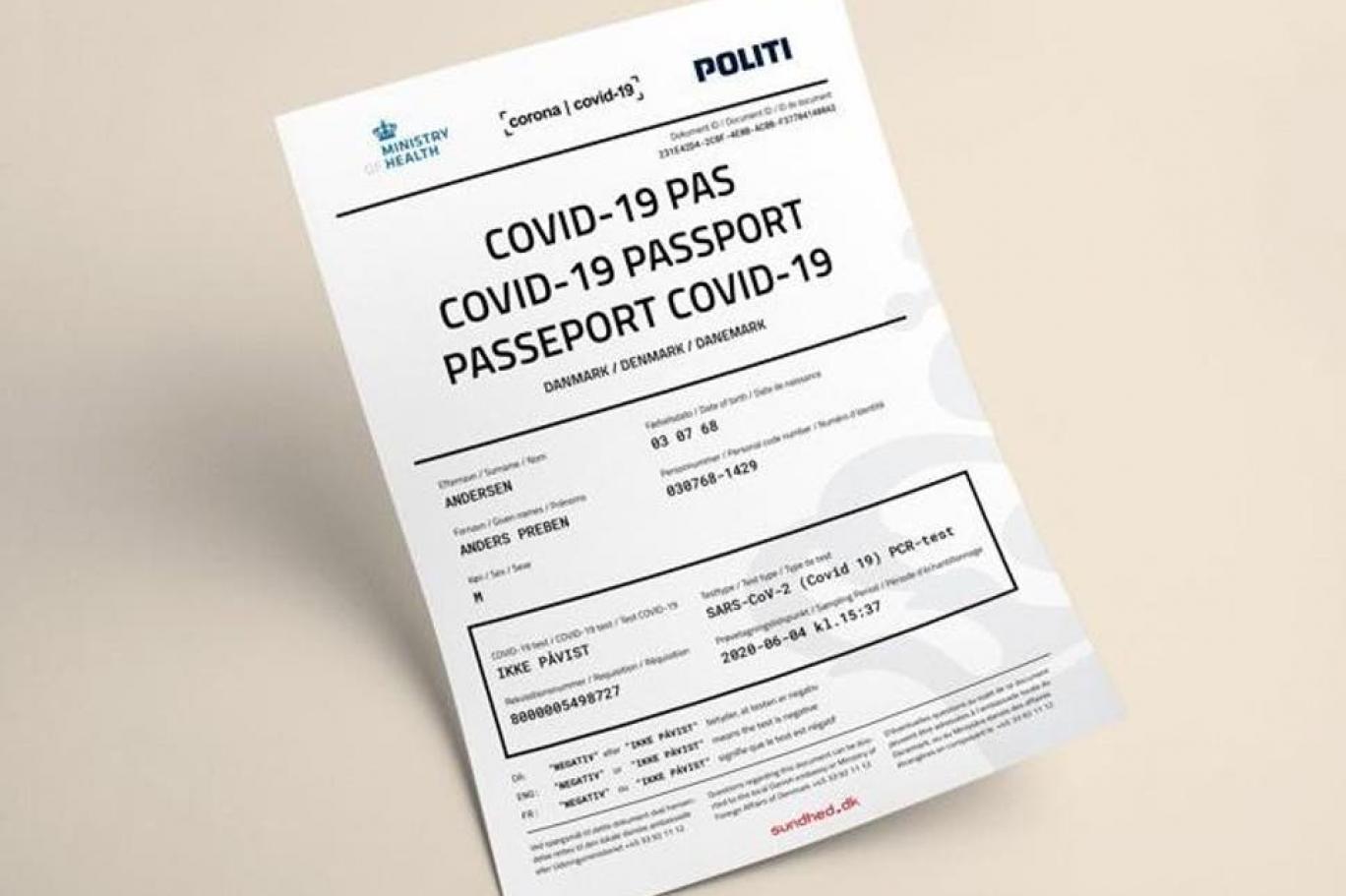Denmark launches the first Covid-19 downloadable passport

Shafaq News/ Denmark has launched what is thought to be the first Covid-19 passport in Europe for use when traveling abroad and domestically.
Citizens there can download the official document if they have tested negative for the illness within the last seven days.
The innovation is different from the more controversial immunity passports which, advocates say, would allow people to prove they had previously had the illness and were now likely to be safe. Rather, the new Danish scheme will help people by enabling them to show they were not positive in a highly recent test, ministers say.
Although some individual health centers and local authorities provide letters to people who have tested negative for coronavirus, it is thought this will be a time such a system has been tried in Europe at a national level.
"With the new Covid-19 passport, we now have a digital offering for Danes who need to be able to bring an official documentation of a test on their journey", said health minister Magnus Heunicke while announcing the innovation.
The system will work by allowing citizens to apply for a test through the country’s national health website. If it comes back negative, they will have a week to download the passport.
It could prove useful in situations such as that on the country's Swedish border where officials now require Swedes to show proof of a negative test before being allowed to cross into Denmark.
Welcoming the initiative, Michael Svane, chief executive of the Confederation of Danish Transport, said: “It will certainly help Danes who have to travel with work or privately.
“We are in a time when, as a traveler, you encounter many obstacles. But the Covid-19 passport is easy to access and very easy to use".
While Immunity passports remain unused, advocates argue that these could be granted to people who could prove they had previously had the illness and were therefore unlikely to contract it a second time or be contagious.
The WHO has cautioned against them saying that the extent of immunity acquired from having had the infection is not yet known and it remains possible that people could become contagious for a second time.